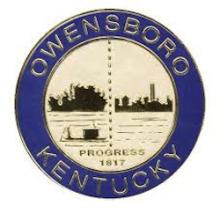Incumbent Unmasked As Fake Citizens Group In West Plains, Missouri
In an attempt to negatively influence public opinion, the incumbent cable ISP in West Plains, Missouri, was recently caught masquerading behind a phony citizens group. A real group of locals who support the community’s efforts discovered the astroturf connection and, with no way to deny their involvement, Fidelity Communications tried to rationalize away their subversive tactics to poison the project.
The Needs Of West Plains
About a year ago, we connected with City Administrator Tom Stehn, who described the situation in the south central town of about 12,000 people. Stehn told the story of how in 2015, the city decided to connect its municipal facilities with fiber and how, when word got out about the project, people in the business community approached the city. Even though local businesses could get cable Internet access, rates were up to three times higher than similar services in urban areas. There were also reliability issues that interfered with local commerce.
West Plains had also experienced significant job losses in recent years when several employers left town or closed shop. The city considered a fiber network an economic development tool and a way to keep the local hospital and MSU campus connected with high-quality connectivity. Stehn told Christopher that when new businesses considered moving to West Plains, one of the five questions they always asked was, “What kind of Internet access do you have?” It made good sense to expand the original plan to offer local businesses access to the publicly owned network.
West Plains was offering symmetrical connections to local businesses early in 2017 and had even started offering gigabit service.
The Pilot And The Incumbent
 The city’s effort to bring better connectivity to a wide range of businesses and residents included a pilot project in West Plains’s Southern Hills district. In the fall of 2017, the city offered gigabit Fiber-to-the-Home (FTTH) connectivity to approximately 80 businesses and 14 residences as a way to work out potential issues and refine their services.
The city’s effort to bring better connectivity to a wide range of businesses and residents included a pilot project in West Plains’s Southern Hills district. In the fall of 2017, the city offered gigabit Fiber-to-the-Home (FTTH) connectivity to approximately 80 businesses and 14 residences as a way to work out potential issues and refine their services.




